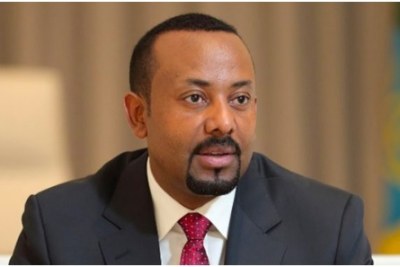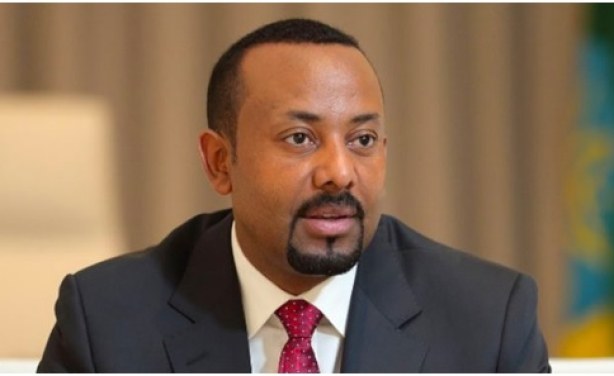-
East Africa: Ethiopia and Eritrea - Is a New War Looming?
DW, 14 November 2023
Ethiopia and Eritrea made peace in 2018, formally ending their border conflict. But control of the Assab port, which serves both countries, has sparked new tensions and led to… Read more »
-
Ethiopia: Ethiopia's Quest for Sea Access Public Agenda - Historian
Ethiopian Herald, 14 November 2023
Ethiopia's aspiration to sea access should not be regarded as a mere agenda of the government or the ruling party and it has an overwhelming support from public at grassroots… Read more »
-
Ethiopia: Quest for Own Port Neither New Nor a Threat to Neighbouring Countries - Prime Minister Abiy
Addis Standard, 14 November 2023
In his response to questions raised by lawmakers at the 3rd year 4th regular session of the House of People's Representatives (HoPR) today, Prime Minister Abiy Ahmed despite… Read more »
-
Ethiopia: Strengthening Ties With Djibouti For Mutual Benefit
Ethiopian Herald, 10 November 2023
Djibouti port is one of the sea outlets of Ethiopia located in the suburb of Bab-el-Mandeb in the south shore of Red Sea. It is bordered by Ethiopia, Eritrea and Somalia.… Read more »
-
Ethiopia: Unbreakable Bond, Unshakable Resolve!
Ethiopian Herald, 10 November 2023
Situated in the strategic yet volatile region of the Horn of Africa, Ethiopia and Djibouti have enjoyed strong Comradery and friendship tied by unbreakable people-to-people bonds.… Read more »
-
Ethiopia: Why Ethiopia Can No Longer Ignore Interests On the Red Sea
Ethiopian Herald, 9 November 2023
The issue of the Red Sea in Ethiopia has long been placed on the back burner though the biggest nation lies a few kilometers away from the strategic location. With the Ethiopian… Read more »
-
Ethiopia: Ethiopia's Interest On Red Sea - an Opportunity Not a Threat
Ethiopian Herald, 7 November 2023
Ethiopia's landlocked status has been a barrier to its trade and development limiting its potential for growth and prosperity. By granting Ethiopia sea access, neighboring… Read more »
-
Ethiopia: Ethiopia's Natural Quest for Sea Outlet Offers Dividend for All
ENA, 28 October 2023
Ethiopia has made bold assertion about its natural and legitimate right to sea outlet. Prime Minister Abiy Ahmed recently made presentation to Ethiopia's members of parliament… Read more »
-
Ethiopia: Ethiopia's 150 Million Populations Can't Live in a Geographic Prison
Ethiopian Herald, 21 October 2023
Ethiopia's population is projected to reach 150 million. A country with a population of 150 million can't live in a geographic prison. Read more »
Will Ethiopia's Search For New Sea Ports Spark Conflict?
Ethiopian Prime Minister Abiy Ahmed has over the past few months shifted his focus to his country's access to seaports for easier access for trade. This follows on the heels of Ethiopia's move to fill the Grand Ethiopian Renaissance Dam (GERD) situated on the Blue Nile tributary, which has seen growing opposition from Sudan and Egypt.
Ethiopia's landlocked status has been a barrier to its trade and development limiting its potential for growth and prosperity. By granting Ethiopia sea access, neighbouring countries can foster mutually beneficial economic partnerships and contribute to the overall stability and development of the region, writes Addisalem Mulat for Ethiopian Herald.
But some countries are becoming concerned at the port move, particularly Eritrea with whom Ethiopia signed a peace deal in 2018 after decades of fighting - a deal that won Prime Minister Abiy Ahmed the Nobel Peace Prize. At the centre of these concerns is Ethiopia's quest to have access to a port on the Red Sea - specifically the port of Assab, located in Eritrea which was part of Ethiopia until it gained independence more than 30 years ago, writes Deutsche Welle.
Ethiopia also has strong relations with Djibouti, bordered by Ethiopia, Eritrea and Somalia. The long-standing diplomatic relations between Ethiopia and Djibouti go back to 1984 and continue to gain momentum in all spheres. With Ethiopia largely dependent on Djibouti port for its import and export of goods, the latter imports fresh fruits and water from the former.
Ethiopian Herald reports as false, information claiming that Ethiopia poses a threat to neighbourring countries in relation to its interests in the Red Sea.
InFocus
-
The Eritrean Afar National Congress (EANC), a political organisation representing the indigenous Afar people of Eritrea's northern coastal region, has called on the Ethiopian ... Read more »




